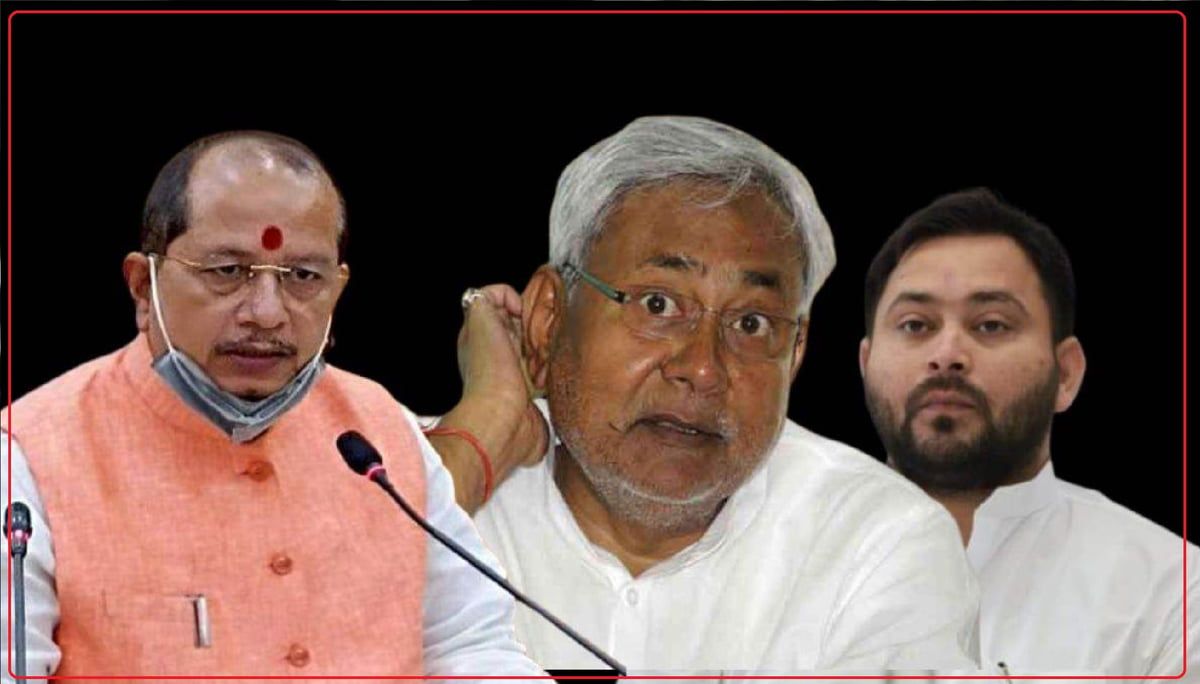The enthusiasm with which the meeting of non-BJP parties was held in Patna eight months ago and the ‘India’ alliance emerging at the national level as an alternative to the BJP in the next few days, has now gone into a coma. Especially in Bihar, there is a big divide among the constituent parties of India. The leader of uniting non-BJP parties was Bihar Chief Minister Nitish Kumar.
After his efforts, the first meeting of non-BJP parties was held in Patna on June 23, 2023 and gradually an alliance of 28 parties took shape. However, fed up with the stubbornness and arbitrariness of the Congress, while Chief Minister Mamata Banerjee in Bengal has announced to contest the elections separately, the Aam Aadmi Party in Punjab has also indicated to contest the elections on its own. Here, in Bihar, where two major constituent parties of ‘India’ have their base, JDU’s path seems to be diverging. With the separation of JDU, India will cease to exist in Bihar and it will remain in the form of a grand alliance like in the last Lok Sabha elections.
The foundation of disunity was laid during the assembly elections of five states.
Actually, the story of this plight of ‘India’ started with the assembly elections of five states held recently. JDU had expressed its desire to contest elections on some seats in Madhya Pradesh and Chhattisgarh, but Congress was not ready for it. At the same time, JDU also wanted to hold a meeting of ‘India’ in Bhopal, but Kamal Nath, former Chief Minister of Congress and contender for Chief Minister of Madhya Pradesh, postponed it. After this JDU fielded its candidates in Madhya Pradesh Assembly elections. Meanwhile, some meetings of ‘India’ also took place. In the meetings held in Mumbai and Bengaluru, it was also decided that there should be a mass election campaign and one to one candidates should be given against the BJP. But, Congress continued on a different path. Therefore the constituent parties started moving away from it.
Congress kept avoiding JDU’s requests again and again
Political experts say that Congress’s problem was due to its numerical strength and leadership. In the states where Congress has been strong including Karnataka, Kerala, Telangana, it remained hesitant in giving seats to its allies. At the same time, in the states including Bihar where constituent parties are strong, it needs respectable seats. Here, JDU kept talking about taking a decision as soon as possible for the coordination of seats, but the Congress leadership kept postponing it. Ignoring the wishes of JDU, Rahul Gandhi set out on his Bharat Jodo Nyay Yatra.
JDU was hopeful that by dividing the seats as soon as possible, an atmosphere could be created against the BJP. But, this wish of JDU could not be fulfilled and ultimately JDU felt that Congress and its allies neither want to rush into seat sharing nor do they have the desire to give important posts to other constituent parties. Experts say that Congress was hopeful that all the opposition parties would come under its umbrella. With the cooperation of the constituent parties, it will get an opportunity to spread in the Hindi belt also. At the same time, it will not allow BJP’s numbers to increase in the southern states. However, the way politics will turn in the southern states will be seen during the elections, but in Bihar this move seems to be backfiring.

